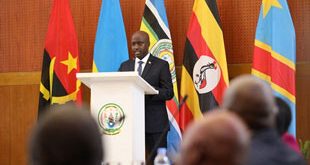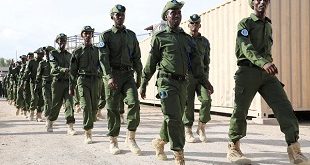
Lagos, Nigeria | AFP | Nigeria was warned on Tuesday that clashes between herders and farmers threatened the country’s national security, after such conflict claimed more lives last year than the Boko Haram insurgency.
The International Crisis Group said some 2,500 people were killed in 2016 and tens of thousands forced from their homes, as unrest spread southwards from central and northern states.
“These clashes are becoming as potentially dangerous as the Boko Haram insurgency in the northeast,” it said in “Herders Against Farmers: Nigeria’s Expanding Deadly Conflict”.
The new report called for more cooperation and the adoption of a number of measures, including better rural security, designated grazing areas and conflict resolution programmes.
The violence has been attributed to a battle for resources because of drought and desertification in northern Nigeria and the wider Sahel region, forcing herders further south.
Cattle rustling, including to raise funds for Boko Haram jihadists, and loss of rural land to urban development are also seen as factors.
As a result, tensions between herders and farmers have been seen as inevitable.
But the ICG also warned that “inflammatory rhetoric” in the largely Christian south of Nigeria against the mainly Muslim northern herders could spark more violence.
Southern leaders have even voiced suspicion that President Muhammadu Buhari has not acted decisively against the herders because he is a Hausa-speaking Muslim Fulani from the north.
The conflict is typically marked by tit-for-tat attacks because of lack of adequate security and response from the authorities such as follow-up arrests and prosecutions.
As a result, the two sides feel forced to take matters into their own hands.
The ICG said there was a clear social and economic cost to the conflict, with some estimates putting the loss in revenue to four states worst affected at nearly $14 billion a year.
But it added: “Like the Boko Haram and Niger Delta insurgencies, the herder-farmer crisis is a threat to Nigeria’s national security.”
It said that “Nigeria’s federal and state authorities, as well as other relevant actors, need to take remedial actions with a greater sense of urgency.
“Failure to respond, decisively and effectively, would allow Nigeria to continue sliding into increasingly deadly conflict.”
 The Independent Uganda: You get the Truth we Pay the Price
The Independent Uganda: You get the Truth we Pay the Price



